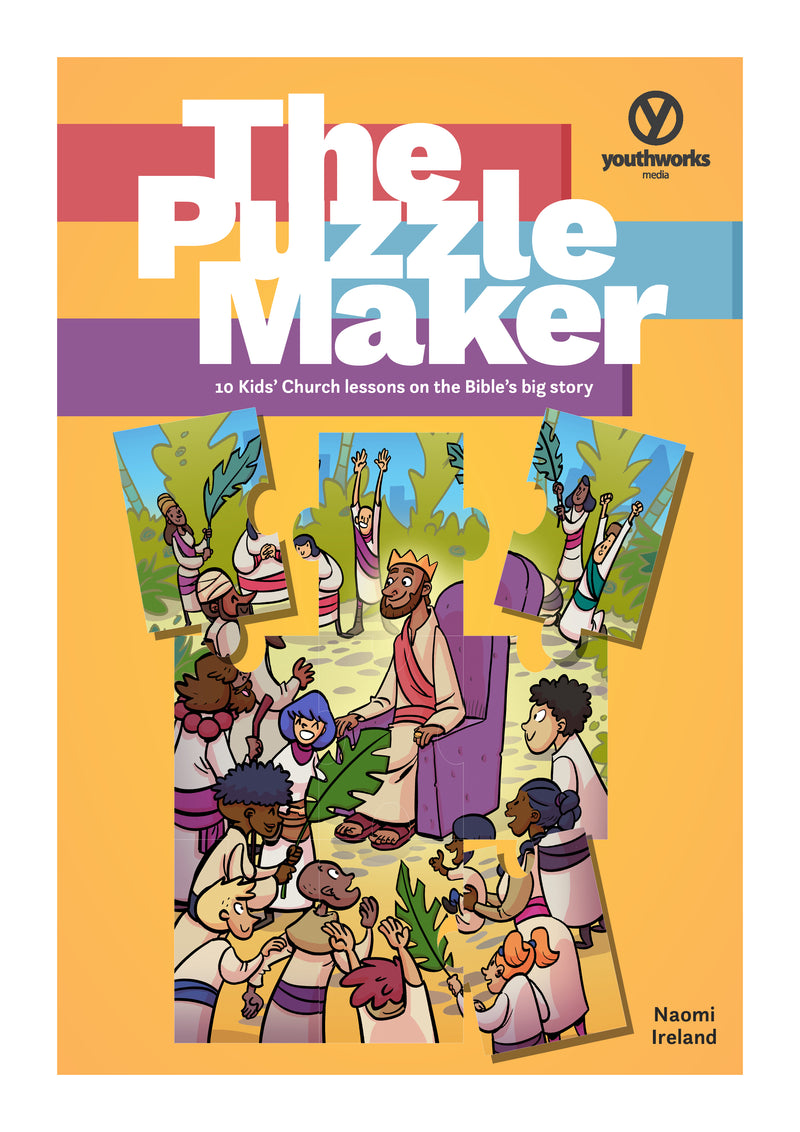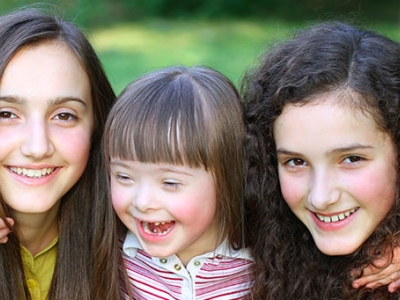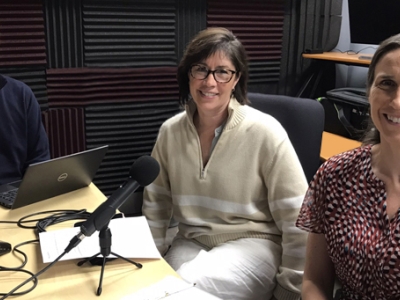
Neurodivergent Christians can find true belonging at church
Kate Morris explains the challenges and opportunities for children and adults.
God's endless creativity is marvellously displayed in the uniqueness of each person. No two brains are the same; we are all individually handmade by him. As the psalmist says, ‘He knit me together in my mother’s womb’ (Psalm 139:13b).
My family has come to understand that some brains operate quite differently from the majority, as we’ve learned more about how our autistic daughter experiences the world. Like many neurodivergent people, she finds that church can be a difficult environment. Yet, like all Christians, she is saved into the body of Christ—she belongs, she is valuable, and she can benefit from others and be of benefit to them. These days, she has some really effective ways to reduce the impact of the sensory environment, and our church has been wonderful at supporting us and our needs.
What makes church so hard?
Every neurodivergent person is different. For some, church is a positive experience, with their neurodivergence enhancing their engagement and connection with the service. Some neurodivergent people navigate church without any difficulty. But others have needs that aren’t met by standard church services. Here are some factors that are particularly challenging for church situations:
- Many neurodivergent people have highly reactive sensory processors that don’t filter sensory input. One autistic girl describes church as ‘hard and … the music is so, so loud’. For many, lights shine more intensely, sounds resonate louder and more sharply, scents are more potent, and textures feel coarser. Enduring this sensory bombardment can be utterly exhausting.
- Many experience attention differences, with their mind skipping between the sensory stimuli or considering multiple thoughts at once. A woman with ADHD tells me, ‘My brain is a radio, and I just can’t tune into the station I want. I can hear the sermon through the crackling static, but other stations burst through and block me from hearing clearly enough to understand’. It can be really draining to force yourself to focus at church.
- Some experience social anxiety that causes distress. An autistic girl finds morning tea particularly difficult, she says, ‘People walk all different ways together in the room, which makes me anxious’. Given that there are certain social codes and expectations embedded in church culture, attending can be overwhelming.
- Some neurodivergent people read, write, communicate or move differently from the majority. If this is not accommodated in church, they can experience great difficulty and feel excluded.
- In order to cope with these difficulties, some people regulate, or calm, themselves or focus their attention by moving—rocking, spinning, flapping or fidgeting, for example. Many churches expect people to sit still, but preventing these movements can hinder a person’s self-regulation and cause them to feel overwhelmed during or after the service.
If these differences are not understood by the community, church can be a particularly challenging experience. Previous negative experiences of church add fear and anxiety, sometimes making the difficulty of attending church start hours or even days beforehand. The exhaustion from enduring these challenges can extend well beyond the end of the service.
In my research, I’ve asked many Christian neurodivergent people and families with neurodivergent members what makes church hard for them. While the details above are significant, many identify the core issue as a lack of understanding. Without understanding, needs go unmet, and they feel judged for being different. One mother summarises it by saying, ‘What would make it easier is non-judgement and compassion’.
If the expectation is changed—if neurodiversity is embraced, and different needs are welcomed—people would be better supported. One mother tells me they receive good support at church: ‘Just being able to be us and not feel judged or like a burden [is] lovely’.
The biblical picture of church incorporates and cherishes difference: we have unity in Christ, but not sameness; the unique qualities each person brings benefit the whole body.
The church has many parts
According to the Bible, the church is a group of redeemed sinners made to truly belong because of the saving work of Christ, not because of sameness of body or brain.
In 1 Corinthians 12:12–20, Paul, likens God’s church to a body, functioning well because of its diversity. Verses 12–14 say:
‘Just as a body, though one, has many parts, but all its many parts form one body, so it is with Christ. For we were all baptised by one Spirit so as to form one body—whether Jews or Gentiles, slave or free—and we were all given the one Spirit to drink. Even so the body is not made up of one part but of many.’
We are God’s gathered, united, diverse people with different gifts, roles, strengths and weaknesses. Each part is valuable, and each part has a role to play. Verse 16 makes it clear: ‘And if the ear should say, “Because I am not an eye, I do not belong to the body”, it would not for that reason stop being part of the body.’
Do you or members of your family operate so differently to others that you feel you are not part of the body? In fact, you are not only part of it, you are indispensable! Verse 17a says, ‘If the whole body were an eye, where would the sense of hearing be?’.
We aren't asked to be identical; our difference is part of what makes us a gift to the church. And so, we mustn’t under-value others or ourselves!
How can we work together?
If our churches commit to listening, while being open to providing or endorsing practical supports, many of the difficulties for neurodivergent people can be alleviated. This allows everyone to serve and be served, extending love to one another.
It’s helpful when church leaders create awareness and become champions for those who operate differently, explicitly guiding the congregation to value being a body of many parts, for the benefit of the church and for the glory of God.
It will mean it’s understood and encouraged when a person or family brings equipment to take control of their sensory environment (earplugs, sunglasses, cushions, fidget tools and so on), or needs a space for their needs (such as a low sensory room or some space to wriggle), or needs helpers, or needs communication adjustments (visual aids, use of specific technology) or any other need. (You can access more information in my free online resources: anextraordinarynormal.substack.com)
Of course, not all the needs of every person in church can be perfectly met, but the principle behind the accommodations can always be incorporated: we are a community that knows, loves and seeks to support each other. One mother tells me of the care shown by church staff: ‘I felt seen because of the way they asked real questions with a heart for seeing [my son] included'.
It’s a beautiful thing when Christ’s love is shown as we serve each other with all that God has given each unique person, presenting and demonstrating the gospel to those at church and beyond.
---
Kate Morris is a mother of three children, two of whom are neurodivergent. This year she is working as a fellow with ADM, writing free online resources for Christian families like hers, combining her education and experience in this field with biblical reflection and interviews with neurodivergent people and their families. Subscribe for free: anextraordinarynormal.substack.com

The Puzzle Maker
A complete 10-lesson biblical theology program for use with children aged 6–12. Each lesson’s components are designed for churches to select from and mix and match so that the program can be run at various lengths, with different age groups and with diverse levels of resources.
For more articles from Growing Faith, subscribe to our monthly e-newsletter.
To hear about the latest books and resources from Youthworks Media, subscribe here.








